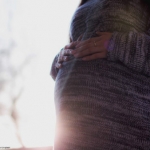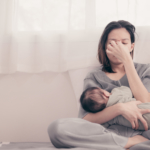The American College of Obstetrics and Gynecology now recommends that women be screened for depression during pregnancy. Because depressive symptoms during pregnancy have been associated with worse outcomes and are a robust predictor of postpartum depression, the identification of women with depression during pregnancy would help us to identify women in need of treatment and who are at high risk of depressive illness during the postpartum period.
While this seems like a wise and well-considered plan, we have long been concerned that not all of the women who would be picked up when screening for depression actually have unipolar depression. In particular, we are concerned that some of these women may have bipolar disorder. This population is at extremely high risk for postpartum psychiatric illness, specifically postpartum psychosis. Because what we might recommend for women with bipolar disorder differs dramatically from what we would consider for women with unipolar depression, this sort of misdiagnosis could have disastrous results.
A recent study looked at this very question. At the initial prenatal visit pregnant women completed the Edinburgh Postnatal Depression Scale (EPDS) and the Mood Disorder Questionnaire (MDQ). Of the 342 participants, 289 (87.1 %) completed the EPDS, 277 (81.0 %) completed the MDQ, and 274 (80.1 %) completed both.
- EPDS: 49 (16.4 %) were positive
- MDQ: 14 (5.1 %) were positive
- Of the 49 women with a positive EPDS, 9 (21.4 %) also had a positive MDQ
- Of the 14 women with a positive MDQ, 5 (35.7 %) had a negative EPDS.
Thus, if we screened only with the EPDS, we would miss about one-third of the women with bipolar disorder. In addition, we would misidentify the other two-thirds of the women as having unipolar depression. This is a bit of an extrapolation, because we would have to assume that these screening tools are 100% accurate in terms of diagnosis. But they are not, and that’s the problem.
We routinely screen pregnant women for gestational diabetes and hypertension. As is the case with these disorders, untreated psychiatric illness in the mother carries risks for both the mother and her child. We must improve our capacity to identify women with perinatal mood and anxiety disorders, and we must provide the support and treatment they need. We have shown over and over that women at increased risk for psychiatric illness are often not identified within the context of routine obstetrical care.
While we are understandably eager to identify women at risk for perinatal depression, screening for depression during pregnancy cannot be viewed as a stand alone. Screening is not a substitute for a diagnostic evaluation, and any woman who screens positive on the EPDS (or other screening tool) needs a more thorough evaluation. If she is diagnosed with major depression or bipolar disorder, she then must be referred to a mental health provider for recommendations regarding treatment.
Screening women during pregnancy is by no means difficult; for a significant period of time women have multiple contacts with healthcare providers, either their own or their child’s, and thus, there are multiple opportunities for screening. But then what happens? Over the last few years, we have seen an increasing number of screening programs, but we have also seen problems. Women who have screened positive have found it difficult to connect with mental health providers in a timely manner.
If we are to pursue universal screening of pregnant and postpartum women, we must make sure an adequate treatment network is in place first. For example, does the obstetrics service have access to mental health professionals with expertise in this area? Would women with no history of psychiatric care be comfortable or willing to see a mental health professional? How long does the woman have to wait for an evaluation? How long is it safe to wait? If the patient needs medications, who will prescribe them? The very impetus for screening is to ensure treatment for women who need it; thus, we must make sure that a failsafe mechanism for accessing this care is in place.
Ruta Nonacs, Md PhD
Merrill L, Mittal L, Nicoloro J, Caiozzo C, Maciejewski PK, Miller LJ. Screening for bipolar disorder during pregnancy. Arch Womens Ment Health. 2015 May 13. [Epub ahead of print]








Antenatal mental health screening is vital; had I been screened during my pregnancy & asked about family history, my health care team would have learned my father had bipolar disorder. Then they would have watched me more closely during the key postpartum period. That didn’t happen, and I almost died because of it.
Immediately after giving birth I was hypomanic and hypergraphic.Hypomania turned into full-blown mania, and two months later, suicidal depression. Not a single medical professional noticed I was manic until i was 6 weeks postpartum.
An enormous amount of suffering could have been avoided if I was properly screened about my family’s mental health history while pregnant.
Dyane Leshin-Harwood, B.A.
Author of the book “Birth of a New Brain – Healing from Postpartum Bipolar Disorder”
with a foreword by Dr. Walker Karraa to be published in Fall, 2016 by Post Hill Press
Member, The International Marce Society for Perinatal Mental Health
Member, The International Society for Bipolar Disorders
Founder, Depression and Bipolar Support Alliance of Santa Cruz County, CA